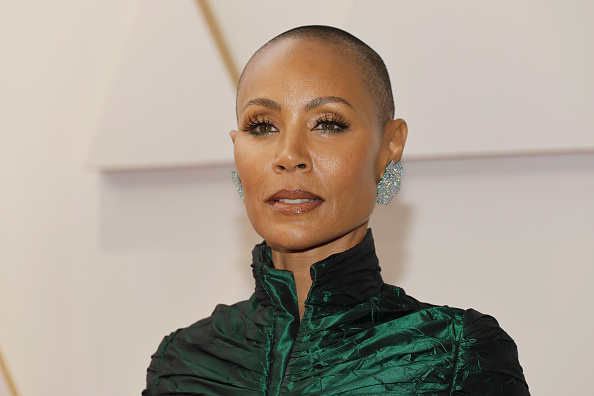Jada Pinkett Smith Becomes The Face of Alopecia. How Can We Be Proactive?

By Joy Stephenson-Laws, J.D., Founder
If you watched the recent Academy Awards, you are probably still somewhat shocked by the slapping altercation that occurred between Will Smith and Chris Rock after Rock made a joke about Smith’s wife Jada Pinkett Smith’s bald head. Rock probably had no idea that he would actually bring national attention to a condition so many people have – alopecia.
Alopecia is an autoimmune condition that causes hair loss, because the body attacks its own hair follicles. Fortunately, this condition is not life-threatening or painful. It often occurs in otherwise healthy people. It is important to acknowledge, however, that hair loss may lead to distress that may increase the risk of developing depression and other mental health issues.
“It was terrifying when it first started,” Pinkett Smith shared in one report. “I was in the shower one day and had just handfuls of hair in my hands and I was just like, ‘Oh, my God, am I going bald?’”
Eventually, Pinkett Smith was able to embrace her hair loss and shaved her head. She looks beautiful, and I’m sure she is an inspiration to the many people that have this condition. According to the National Alopecia Areata Foundation, 6.8 million people in the United States and 147 million worldwide have or will develop alopecia at some point in life.
There is no cure for alopecia, but there are different methods of treatment such as steroid injections (Jada Pinkett Smith used this method) and topical or oral medications.

What about biotin?
You have probably seen biotin supplements at your local grocery store or pharmacy. Biotin is pretty much known as the hair growth nutrient. Biotin is actually one of the B vitamins (it is vitamin B7). Along with potentially promoting healthy hair, biotin may be good for skin and nail health. This B vitamin is also needed for energy metabolism, fat synthesis, amino acid metabolism and glycogen synthesis.
A wide variety of foods contain biotin, including salmon, sunflower seeds, cauliflower, egg yolks, peanuts, liver, chicken, yeast, mushrooms, almonds, spinach and sweet potatoes.
“While current treatment [of alopecia] often relies on invasive steroid injections or immunomodulating agents with potentially harmful side-effects, therapy by micronutrient supplementation, whether as a primary modality or as adjunctive treatment, could offer a promising low-risk alternative,” reports the National Institutes of Health (NIH).
“Biotin's function in protein synthesis and more specifically, in keratin production, explains its contribution to healthy nail and hair growth. Biotin is readily found in many foods and is also produced by normal gut flora.”
The NIH discusses research which found that subjects who suffered from alopecia and took biotin supplements experienced hair regrowth.
It is, however, important to note that “Researchers have also noted that certain hair loss conditions like alopecia can resolve spontaneously without treatment, so it is not clear that biotin supplements specifically caused the regrowth,” according to Harvard T.H. Chan School of Public Health.
It really depends on the person and his or her particular case of alopecia. Some have more severe cases than others. And the reality is that there needs to be more research done in order to definitively determine if biotin can help with hair loss.
As always, it is a good idea to seek the advice of a competent healthcare practitioner when taking any supplement. You want to ensure that you are taking a good quality supplement in a safe manner.
“We find biotin to be very helpful for hair disorders,” said dermatologist Wilma Bergfeld, in this Cleveland Clinic report. “It also makes nails thicker, and oral biotin is exceedingly safe, even in large doses.”
My takeaway is that if you are suffering from alopecia or another condition that is causing hair loss, it is perhaps a good idea to get tested for biotin deficiency. It may not hurt to give biotin a try as long as you do it in a safe and healthy manner. There are also a lot of biotin shampoos and conditioners as well as hair serums. You can also give these a try, but I recommend testing just a little on your scalp at first to see if you have any unfavorable reactions. If you have sensitive skin, seek the advice of a dermatologist.
Focus on comprehensive nutrition
Nutrients such as zinc, iron and vitamins C and D are important for hair growth and health.
It is important to take routine nutrient tests in order to identify any nutrient imbalances or deficiencies you may have. If the test reveals you have too much or too little of a certain nutrient, a competent healthcare professional can work with you on making the necessary dietary changes and recommend quality supplements if necessary.
Enjoy your healthy life!
The pH professional health care team includes recognized experts from a variety of health care and related disciplines, including physicians, attorneys, nutritionists, nurses, and certified fitness instructors. This team also includes the members of the pH Medical Advisory Board, which constantly monitors all pH programs, products, and services. To learn more about the pH Medical Advisory Board, click here.







